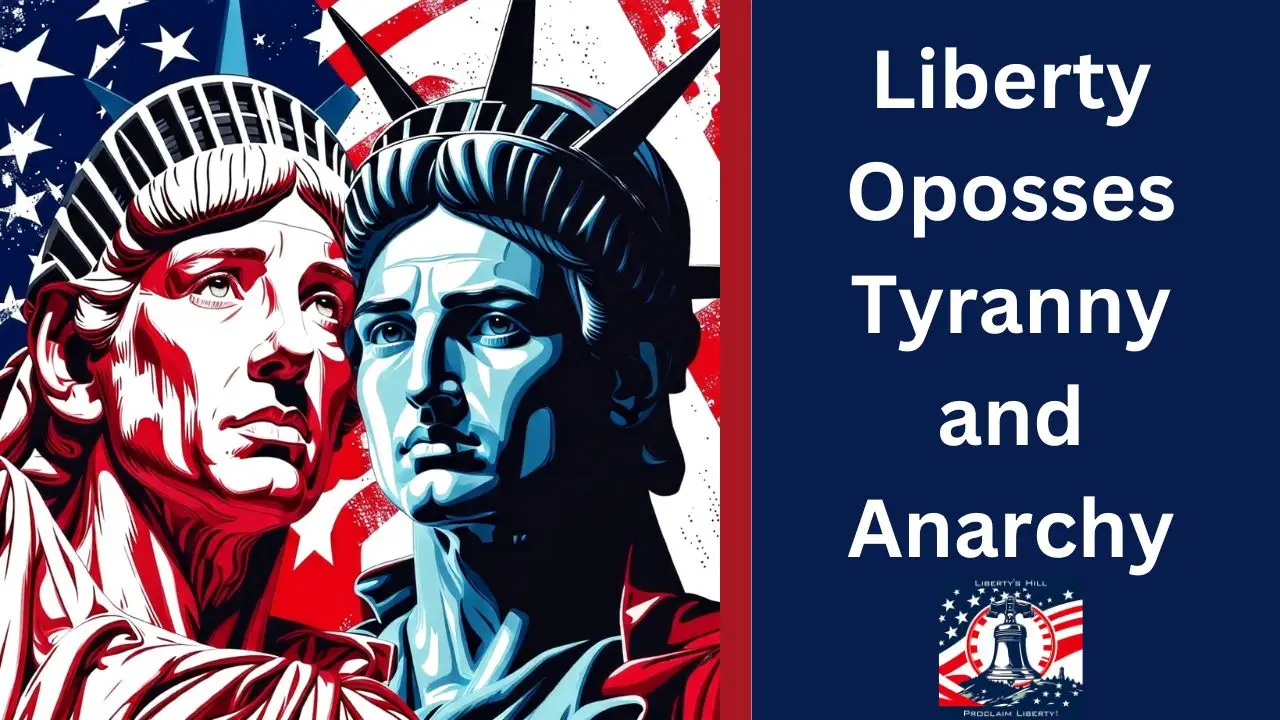Exploring Liberty: The Balance of Freedom and Order
In our quest for understanding the concepts of liberty and freedom, we often find ourselves navigating through a complex web of ideas that evoke strong emotions. Dr. Bill Brannan, a pastor from Liberty Hill, Texas, delves into these intricate themes, questioning how we can foster a world where human flourishing, justice, dignity, and prosperity coexist. This blog post aims to unpack Dr. Brannan’s insights on liberty, tyranny, and oppression, while emphasizing the importance of understanding the spirit behind these concepts.

Photo by Sasha Freemind on Unsplash
The Essence of Liberty and Freedom
Liberty and freedom are not just abstract ideas; they are foundational elements that inspire us as human beings. The terms evoke feelings of hope and aspiration, while the concepts of tyranny and oppression stir our innate desire for justice and revolt against injustice. Dr. Brannan emphasizes that discussions surrounding these topics often reveal a fundamental disagreement on how to achieve a better society.
During his conversations with various individuals, including liberal activists, Dr. Brannan observes a common thread: the intent to improve societal conditions. However, he warns that the methods proposed can lead to unintended consequences, potentially steering society towards tyranny rather than liberation. This paradox highlights the need for a nuanced understanding of liberty.

The Dangers of False Messianic Movements
Dr. Brannan introduces the idea of false Messianic movements—initiatives that promise a better world but deliver adverse outcomes instead. He argues that these movements often arise from a belief that a powerful state can rectify the failings of humanity. However, he warns that relying on the state to govern human behavior through coercion can lead to a totalitarian regime, where individual freedoms are curtailed.
In his discussions, he finds common ground with those who recognize societal problems but diverges on the solution. The reliance on a regulatory state to enforce behavior contrasts sharply with his belief in the necessity of a moral framework that respects individual rights and freedoms.

Photo by Museums Victoria on Unsplash
Understanding Human Complexity
One of the central themes in Dr. Brannan’s philosophy is the complexity of human nature. He asserts that people are not simply good or bad; rather, they are multifaceted beings capable of growth and change. This understanding is crucial for creating a world where individuals can flourish.
The goal is to cultivate better individuals who can contribute positively to society. It requires a commitment to dialogue and collaboration, even with those who hold opposing views. Dr. Brannan’s approach emphasizes the importance of finding common ground, particularly around concepts like liberty and freedom, which are integral to America’s identity.

Photo by Marie-Michèle Bouchard on Unsplash
The Foundational Framework of Liberty
Dr. Brannan calls for a return to the foundational principles of liberty as envisioned by the Founding Fathers. He argues that without a clear understanding of what liberty entails, the term can be co-opted into slogans that ultimately undermine its essence. This understanding is crucial in preventing the erosion of freedoms in the name of progress.
He highlights the danger of framing liberty solely as freedom from government interference, particularly in the context of taxation. This perspective can lead to anarchy, where there is no moral compass guiding behavior, and power dynamics dictate truth and justice.

Photo by Phạm Chung 🇻🇳 on Unsplash
The Cycle of Anarchy and Tyranny
Dr. Brannan draws on historical insights to illustrate the cyclical nature of anarchy and tyranny. He points out that anarchy, characterized by the absence of law and order, often paves the way for tyranny, where a single entity or group consolidates power to restore order. This cycle is detrimental to the very fabric of a free society.
To illustrate this point, he discusses how the belief in subjective morality can lead to a “might makes right” mentality, where the powerful impose their will on the weak. Such ideologies can undermine the foundational principles of liberty, steering society towards oppression rather than freedom.

Photo by Clem Onojeghuo on Unsplash
Rethinking Moral Principles
Dr. Brannan challenges us to rethink our moral principles, particularly those derived from religious teachings. He discusses the Golden Rule—treating others as you wish to be treated—and how it can be misapplied to justify harmful actions. This misuse underscores the importance of understanding the spirit behind moral directives rather than adhering strictly to the letter of the law.
By embracing the spirit of ideas like goodness, truth, and beauty, we can create a more just society. This understanding allows for genuine agreement among individuals, fostering collaboration towards common goals.

Photo by Sebastian Herrmann on Unsplash
Navigating Ethical Dilemmas
Dr. Brannan also addresses complex ethical dilemmas, such as the moral implications of lying to protect those in danger. He argues that understanding the spirit of moral commandments can guide us towards actions that align with our values. For instance, lying to protect innocent lives during the Holocaust can be viewed as an act of fulfilling a higher moral duty.
This approach encourages individuals to engage deeply with ethical questions, recognizing that the path to a better world often requires navigating difficult moral landscapes.

Photo by Seiya Maeda on Unsplash
Creating a Blueprint for a Better World
The ultimate goal is to develop a collaborative blueprint for a better world. Dr. Brannan emphasizes that this endeavor requires open dialogue and a willingness to engage with differing perspectives. By fostering a culture of understanding and respect, we can work together to create a society that values liberty and justice for all.
He invites readers to share their thoughts and engage in meaningful discussions about these critical issues. This dialogue is essential for bridging divides and forging a path towards a more equitable world.

Photo by Ben White on Unsplash
Conclusion: The Ongoing Journey
In conclusion, the exploration of liberty, tyranny, and oppression is an ongoing journey that requires active participation from all members of society. Dr. Brannan’s insights challenge us to reflect on our values and the implications of our beliefs. By understanding the spirit behind our ideals and engaging in thoughtful dialogue, we can strive towards a future where liberty and justice prevail.
Let us remember that the pursuit of a flourishing society is not merely about achieving freedom from oppression but about cultivating a culture that promotes goodness, truth, and beauty in every aspect of life.

Photo by Vlad Bagacian on Unsplash


